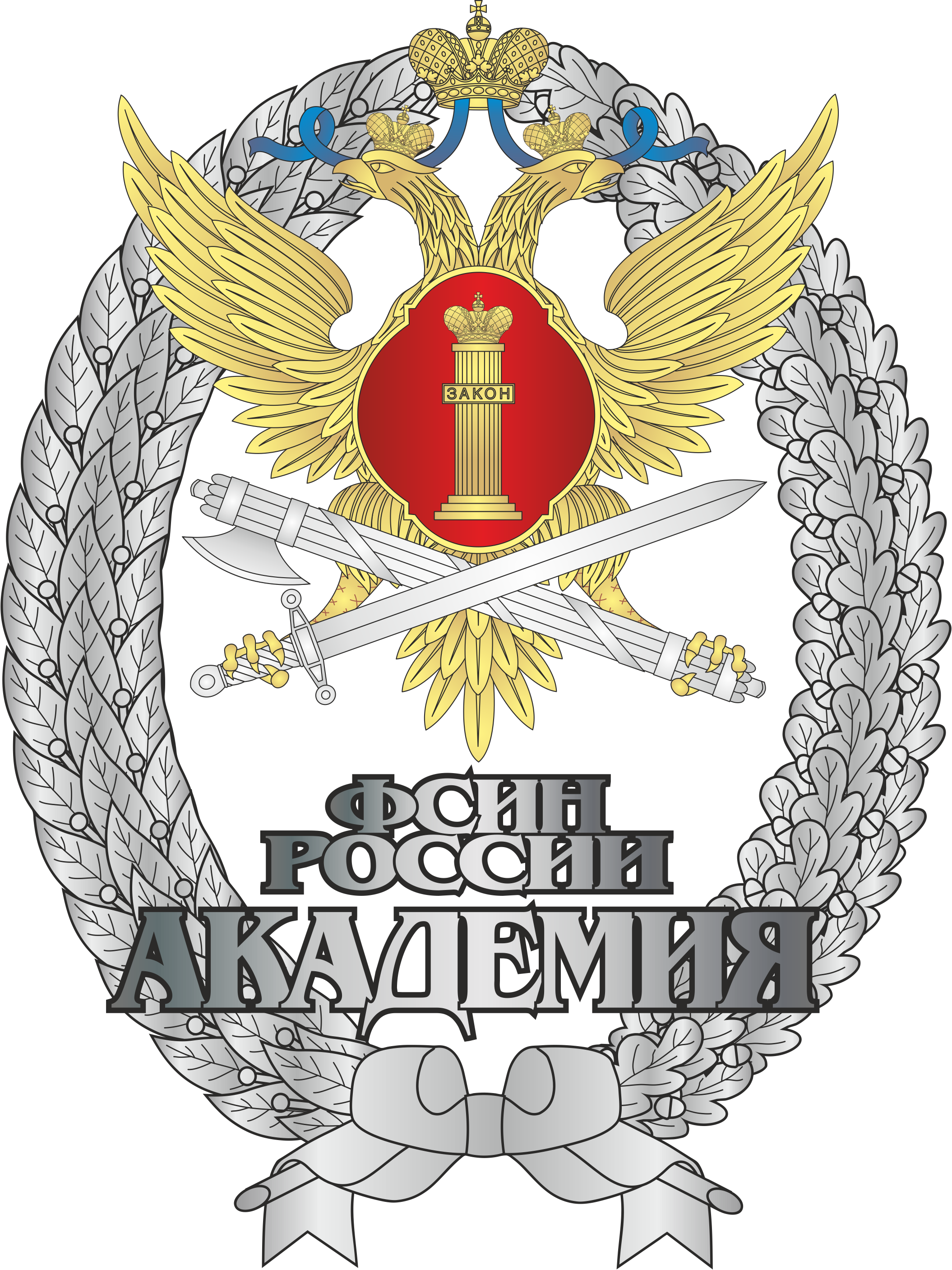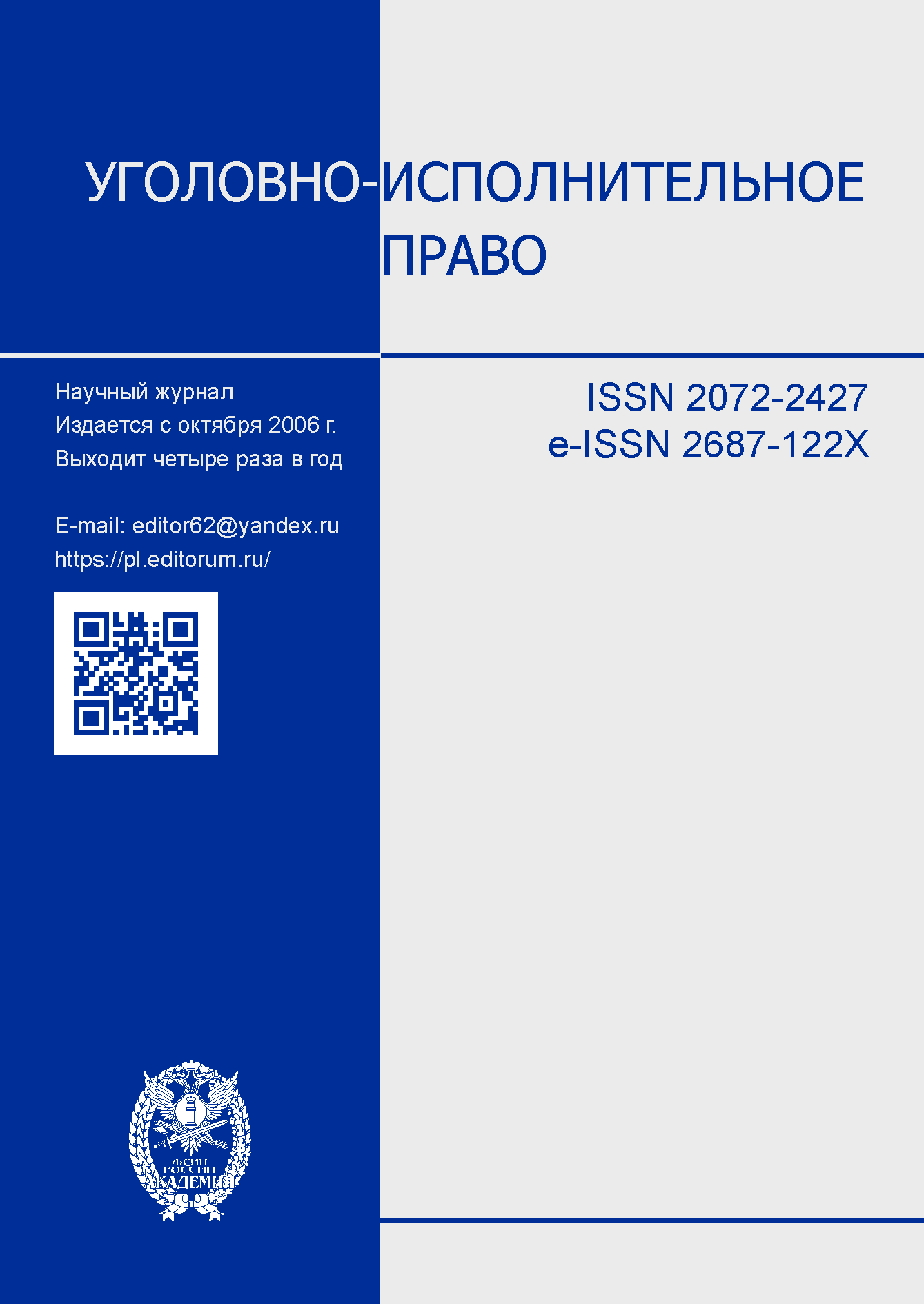UDC 343.82
The article examines the legal category of “disobedience to representatives of the administration of a correctional institution.” Group disobedience in the form of strikes, refusal to eat, and acts of autoaggression is analyzed. The article reveals the legal nature and role of the organizer of mass protest actions in places of detention, the causal relationship between the actions of the organizers and the behavior of active participants in malicious violations of punishment. A distinction is made between crimes and disciplinary offenses in the form of organizing groups of convicts aimed at disobeying the administration of a correctional institution and participating in such groups. It is concluded that in any form of legal disobedience there should be no violence or threat of its use, otherwise the illegal behavior of a person can be qualified as disorganization of the activities of institutions that ensure isolation from society.
disobedience, demands, malicious violations of the regime, grouping
1. Gordopolov, A. N. 2022, A malicious violator of the regime of serving a sentence of imprisonment and his responsibility in the penal enforcement legislation: PhD thesis (Law), Ryazan.
2. Zubkov, A. I. (ed.) 2007, Commentary on the Criminal Executive Code of the Russian Federation, 3rd edn, Norm, Moscow.
3. Malein, N. S. 1985, Offenses: concept, causes, responsibility, Moscow.
4. Musaleva, A.V. & Sabirov, D. S. 2019, ‘Legislative gaps in the application of penalties when convicted persons commit violations of the established procedure for serving sentences and their elimination’, Bulletin of the Samara Law Institute, iss. 4(35), pp. 67–72.
5. Pleshakov, A. M. & Shkabin, G. P. 2022, ‘The threat of violence against a convict as a way to disorganize the activities of a correctional institution’, Penal law, vol. 17(1-4), iss. 3, pp. 326–333.
6. Korobeev, A. I. (ed.) 2008, Complete course of Criminal law, in 5 vols, vol. 1, St. Petersburg.
7. Dmitrenko, A. P. 2022, Criminal Law, General part (supporting lecture notes), Moscow.
8. Utkin, V. A. 2013, ‘On criminal legal means of ensuring law and order in correctional institutions’, Bulletin of the Kuzbass Institute, iss. 1(14), pp. 7–13.
9. Utkin, V. A. 2022, ‘Rationality of coercion as a principle of legal regulation of the execution of deprivation of liberty’, Penitentiary Science, vol. 16, iss. 1(57), p. 29–36.
10. Yuzhanin, V. E. & Bochkarev, V. V. 2022, ‘The problem of the concept of a malicious violator of the established order of serving a sentence in places of deprivation of liberty’, Bulletin of the Vladimir Law Institute, iss. 4(65), pp. 12–17.











